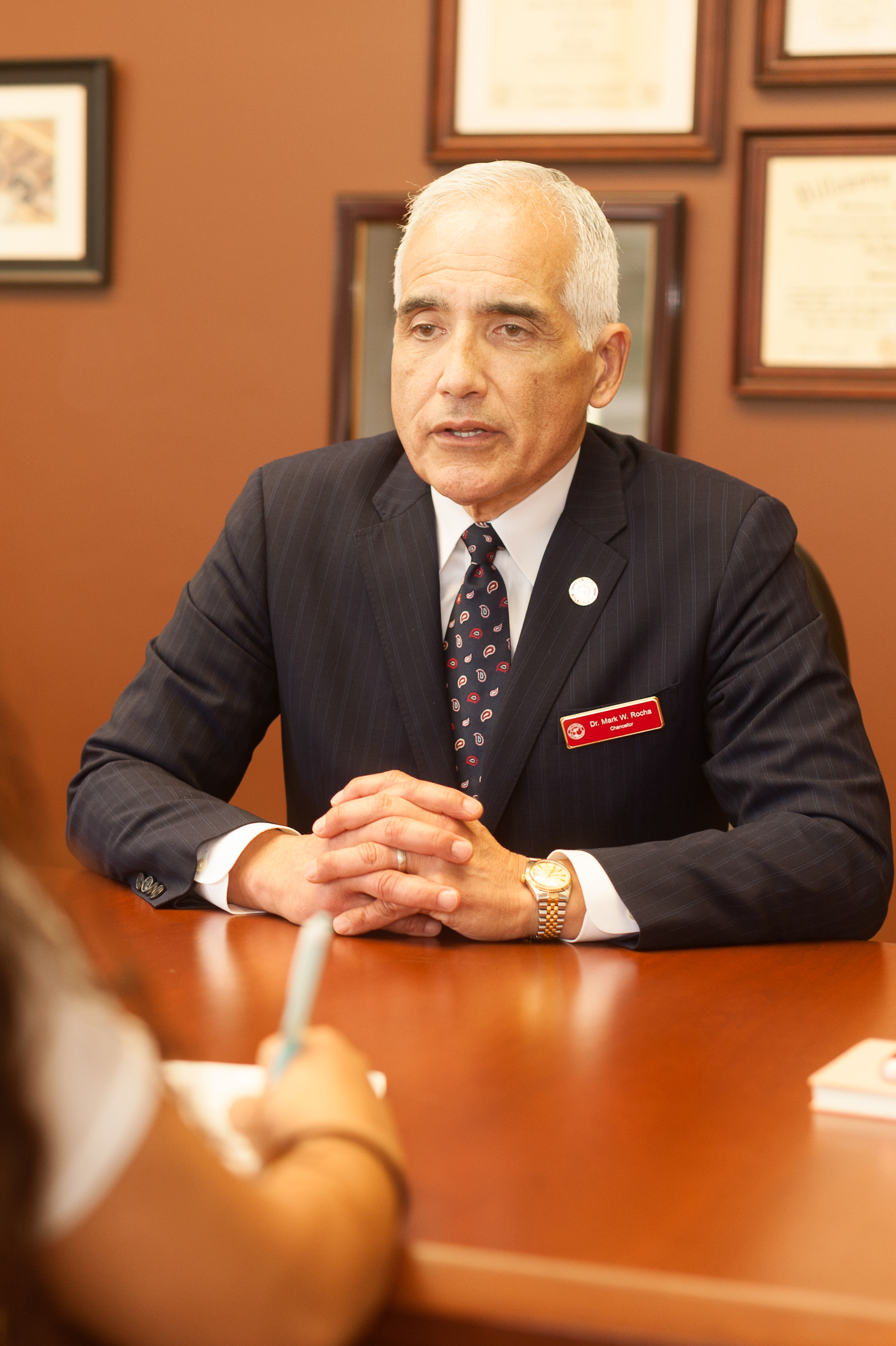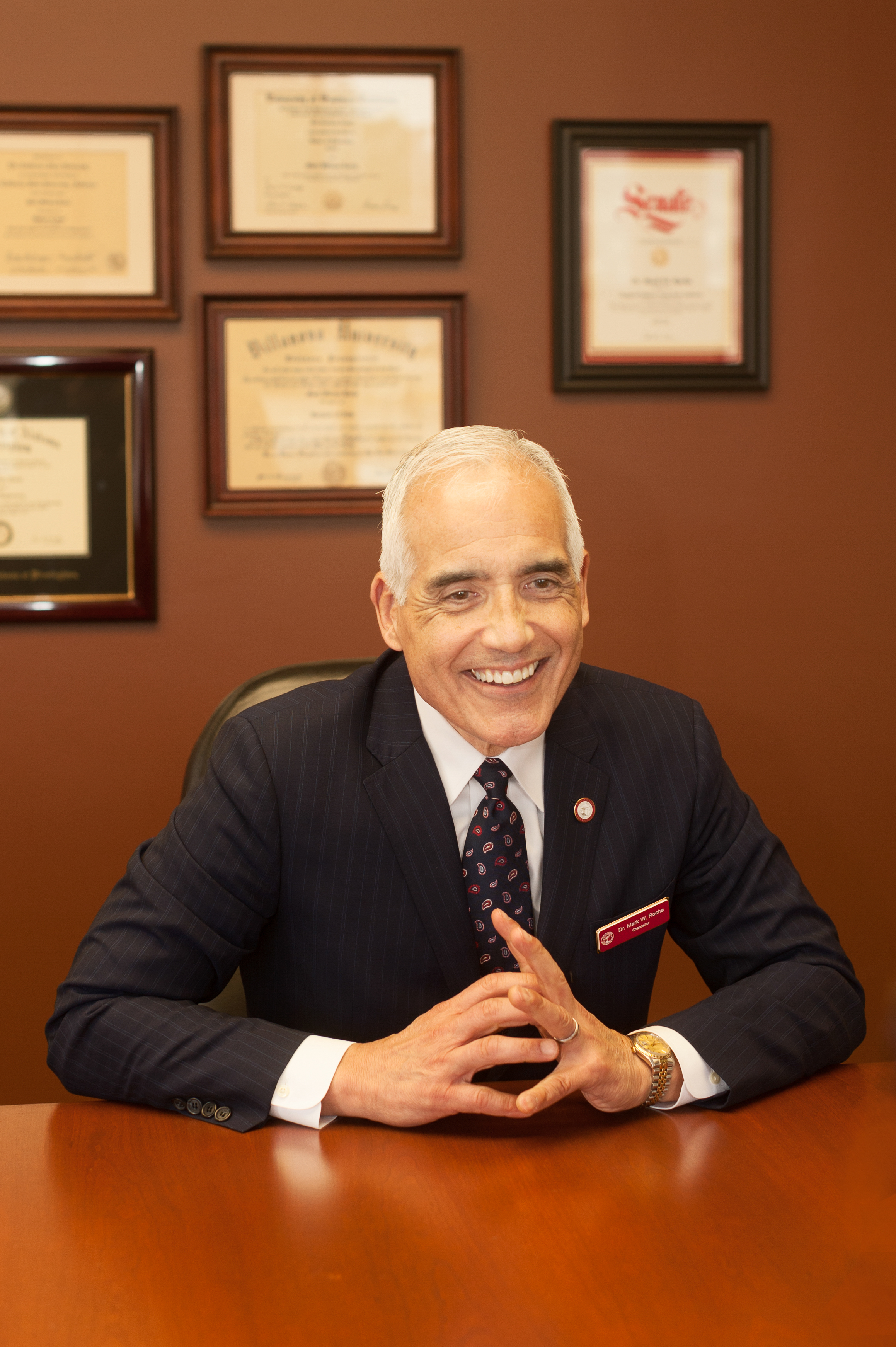Exclusive Q&A with City College Chancellor Mark Rocha
By Cassie Ordonio
The Guardsman sat down with newly hired Chancellor Mark Rocha to discuss his role at City College on Aug. 22. The New Yorker has a doctorate in literature and a master’s in engineering. The Board of Trustees selected Rocha on July 1, with a vote 6-1, thus making him the first permanent chancellor since 2015.
The Guardsman: Knowing City College of San Francisco had been embroiled in a five-year battle over its accreditation, why did you seek to become chancellor?
Rocha: Because that battle is over. As [I] said to the faculty and staff last Friday, they–not me– saved the college. They got the accreditation back. So the opportunity to come here didn’t scare me at all. It actually attracted me because now I have the opportunity to build on the success that was already here. I think that some of the experiences that I’ve had in the past match up with where we want to go as City College for the future.
G: As you well know, there was great concern among some City College students and faculty about your candidacy because of no confidence mandates by students and faculty at your last university job. How do you hope to win over your critics at City College?
R: Well by going every morning over to Philz, as I did this morning, and having coffee with my colleagues. One of the most important things about leadership is to be accessible. So I think one of things I’ve tried to do is get out from behind this desk and to let people know that we can sit down and have a real talk. So all you can do is move forward and I think all the faculty leaders and all the students that I’ve met are happy to move forward.
G: What skills and/or experiences do you bring to the job that will help City College?
R: This will be the 10 year that I’ve been a college president or head of a college. So a lot of the challenges that the college is facing [are ones] that I’ve faced before successfully. I think the big goals moving forward are that we want to grow the college back to the size it was before the accreditation difficulty.
We have five years to restore the college to its previous enrollment. I think where I can help is to develop a plan with faculty, staff and students for growing the college, which means a couple things. Number one, Free City… but I think number two is we need to look at what I call “program aligner.”
What are the programs in this economy? What are the programs we need in this particular region that serve students in terms of employment? And finally–and probably my most deeply held value, the most important thing I bring to the college and one of the reasons why the board selected me–is my deep, deep abiding concern for the underprivileged. I started out as one.
For example, we have a large amount of homeless students, so where I’ve been, I’ve been a pretty strong advocate not just for diversity, which is important, but for social justice, for actually giving everybody a real opportunity at equality and higher education. And trying to give people an opportunity to have access to the same privilege.
G: In your opinion, what should be the role of a community college and how should that be achieved?
R: The role of the community college is a social justice mission. Let’s put it specifically, City College of San Francisco is the one social justice institution where we take the top 100 percent of students where no questions are asked; all you need to do is get here somehow, and we take in and we try to do our best to give you access to quality higher education. Fifty or 60 years ago, it was only a dream; it wasn’t a reality. What is it, 1935, the college was founded? Now well over 80 years it’s still here, and it’s here for one reason, and that one reason is a social justice mission.
G: What do you see as the pressing challenges facing City College today?
R: First of all, as I’ve said to the faculty, I don’t think City College is in bad shape. I don’t think City College is broken. I think City College in a very, very good place. The accreditation is in hand. As I’ve said many times, our academic outcomes by our students’ success outcomes, our graduation rate, our completion rate, the quality of the academic instruction, that was never in doubt. So in many ways the accreditation crisis falls behind us, rear view mirror, was unfair. But the faculty and staff pulled together and pulled the college through. So I don’t think we start with that something is wrong. I think we start here with there’s a lot of things right….Mostly we need to make sure we have a student’s first agenda in which students are getting the classes they need, when they need them, and the programs they need.
G: During your first year as chancellor what do you hope to accomplish?
R: We want to build relationships and trust through the faculty, staff and students. So together we can make a plan for the future.
G: In light of the college’s tight fiscal constraints, what actions will you take, while not compromising the academic integrity of the college?
R: Let me put it in the positive: I will take no actions (laughs). I have never ever, ever taken an action, nor will I ever take an action, that will jeopardize the academic integrity of the college, period. Budgets are always constrained, so while we have to make sure the public’s money is spent wisely, I don’t think budget is the driver of a quality college; that’s the way we make decisions. You make decisions on what’s best for the students. Students first, which is, I suppose the theme, the unified theme that brings us all together. We already have an approved budget that was approved before I came on it. I don’t plan to make any changes on that. And hopefully, if we continue to grow the enrollment, the enrollment is up significantly, that will get the increased revenue we need to make sure that academic integrity continues to be assured.
G: How critical is the doctrine of transparency for your administration and how do you hope to achieve it?
R: I think it’s extremely important. Our accreditation was reaffirmed on the basis of a very, very clear system. A participatory governance. We will follow what we said we were gonna do. We’re going to discuss all the issues in the open. Even if those issues are difficult issues. You want to invite different opinion. Transparency demands a kind of universal democracy in which every voice is respected and is heard. And that process moves on to the board of trustees.
G:The growing number of high-paid consultants and the high salaries of administrators have been long-time concerns for City College students and faculty. What is your response to those concerns?
R: I’d have to study that because I don’t know. I need to look at the budget and see growing number of consultants and high-paid administrators. Certainly I’ll look at that. I’ll say two things. One is that we have a college of 37,000 students, so that makes it the 5th or 6th largest college in the State, and there’s 112 [colleges in California]. To run an operation with 37,000 students and an operating budget of about 180 million dollars requires… some expertise and some administrators who can do the jobs. But the other thing is, I think the response to your question has to do with the principle of equity.
G: A continuing grave concern has been the absence of a full-time City College public relations/marketing director to help promote the college and to work with the local media when a crisis arises. What plans do you have filling that position and by when?
R: I don’t have plans. I have plans to do planning. There are a lot of vacant positions in the college right now, and one of the promises that I’ve made is that we will keep things running strong this year while we do some planning. It would not be transparent if I started filling all these positions myself quickly. So I do have plans, but those plans need to take time.
G: What kind of leader do you want to be for City College and the San Francisco community at large?
R: I’m out there morning, noon and night representing the college and talking it up and trying to garner the support that we need in order to put students first.
G: Did you receive any advice from the last chancellor? If so, was it helpful?
R: It was very helpful. First of all, I want to thank Dr. Susan Lamb. I got to know her a little bit. She got the accreditation. I owe her a great debt of gratitude. She was able to give me a lot information on the transition. The best advice that Susan gave me, and most of my own mentors have given me, is take your time and listen.
G: In closing, is there anything you would like to say directly to City College students and faculty?
R: I want students to achieve their dream. And I believe… every student came here, with a goal in mind. It’s really important to me that every single student gets what they came here together for. We do pretty well, but we have more work to do to make sure that everyone really is able to get the classes they need and to move on to graduation [and] transfer. I always congratulate students for the wise decision they made to come here…. I just try and honor their decision and never ever give up. It’ll all be worth it.


